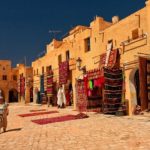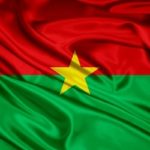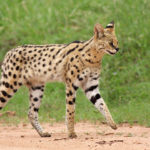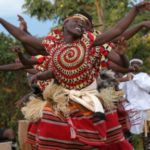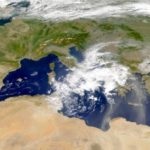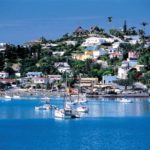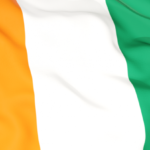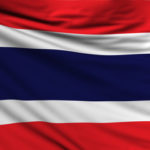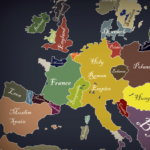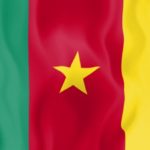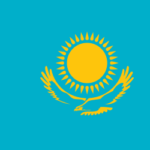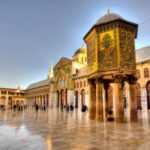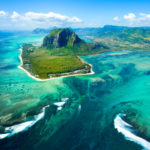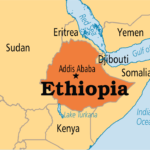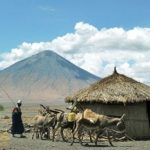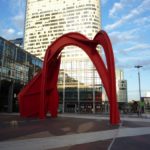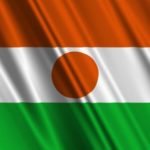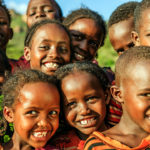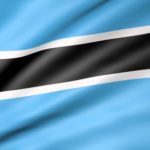Interesting facts about Algeria
 Algeria is a large country located in the north of Africa. Once these lands belonged to France, but Algeria has long been an independent state. Local beaches are very popular with tourists, especially European ones, and the ancient culture of peoples inhabiting the territory of modern Algeria attracts even more fans of history.
Algeria is a large country located in the north of Africa. Once these lands belonged to France, but Algeria has long been an independent state. Local beaches are very popular with tourists, especially European ones, and the ancient culture of peoples inhabiting the territory of modern Algeria attracts even more fans of history.
Algeria is the largest state in Africa.
Algeria was almost a century occupied by France because of the fly swatter. In 1827, the head of Algeria, during a fierce discussion with the French ambassador about debts, allowed himself to strike the diplomat with a fly swatter. A few years later, Paris avenged this insolence, depriving the state of independence and introducing its troops into its territory.
France conducted the first atmospheric nuclear test in Algeria. In 1960, a bomb with a capacity of approximately 70 kilotons in TNT was blown up (for comparison, the Americans dropped a bomb with a charge of 13 to 18 kilotons to Hiroshima). In total, France conducted 17 nuclear explosions at the Algerian test site. The level of radiation near this territory has been exceeded so far.
Despite the fact that Algeria is an Islamic country, in it women have the right to divorce their husbands and independently engage in the upbringing of children. Most of the Algerian lawyers and doctors are women, the parliament consists of one-third of the representatives of the fair sex.
Due to the difficult political situation in Algeria, a state of emergency was in place for 19 years. It was canceled only in late February 2011.
A large part of the territory of this African country (about 80%) is occupied by the Sahara desert.
Almost no animals were left because of the poachers and hunters in Algeria.
In Algeria, as in most African countries, couscous is extremely popular. Is this dish fork is considered indecent – couscous is eaten only with your right hand, in extreme cases you can use a spoon.
In Algerian houses there are no dining tables and chairs – local people eat, sitting on the floor on carpets and pillows.
Algerian University since 1958, students are taught Russian.
In Algeria there is a unique lake filled with the natural equivalent of ink.
Algerians say hello, kissing their loved ones an even number of times.
The legendary French fashion designer Yves Saint Laurent was born in Algiers.
Due to the addiction of Algerian men to the gorgeous women in the country in the past there were special houses for the fattening of girls to be extradited.
Metro in Algeria, opened in 2011, was built by specialists from Russia and Ukraine.
The Algerian military is officially forbidden to create families with citizens of other countries.
The front license plates on the Algerian cars are white, and the rear ones are yellow.
In Algeria, there are no McDonalds network establishments.
In Algeria there are no bakeries – buns and baguettes are baked by store employees. Yes, every store selling bread has its own bakery.
Favorite sport of Algerians is football.
In the 16th century, Algeria was ruled by the famous pirate Aruj Barbarossa.
Algeria became the first country in the Arab world where women can work as taxi drivers and bus drivers.
In Algiers there are 7 monuments of architecture of world significance. The most important object of cultural heritage is the ruins of the ancient city of Tipas.
Despite the hot climate, snow falls in some parts of Algeria during the winter months.
Soviet soldiers neutralized mines in Algeria after the withdrawal of the French occupation – this task cost the lives of 25 servicemen.
In Algeria there is an Association of Russian Women.
The law allows Algerians to legally exchange for local currency only 300 dollars a year.
The coastline of Algeria is the longest among the states of the Maghreb (political association of the countries of North Africa). Its length is 988 kilometers.
In Algeria, it is not customary to give birthday gifts. Instead, guests pay a festive feast. A good custom, huh?
Formally, Algerians are allowed to have up to 4 wives, but the overwhelming majority of local residents are limited to one spouse.
In Algeria, earthquakes quite often occur, therefore, in high-rise buildings, as a rule, there are no elevators.
Algerians are very disciplined and accurate drivers, since the slightest violation of traffic rules threatens with the deprivation of rights for up to 3 months.
On Algerian streets, traffic lights can rarely be seen – they are replaced by policemen who are on duty at busy intersections.
For guests in Algeria, milk and dates are always prepared.
